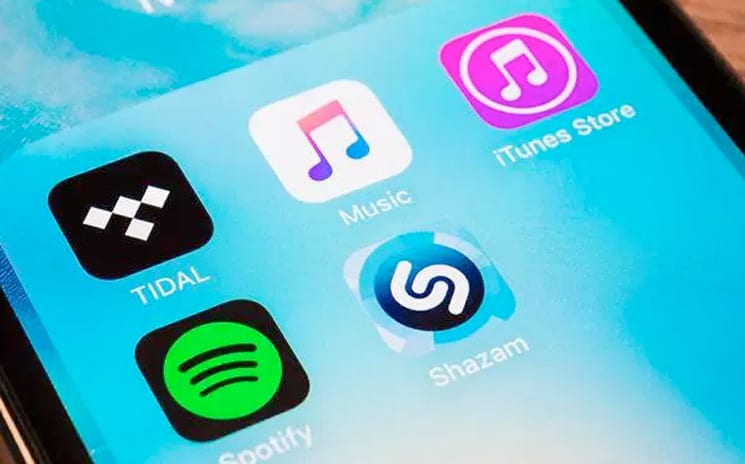Spotify, Amazon, Apple, Google and Pandora have filed proposals with the Copyright Royalty Board to adjust music streaming royalty rates over the 2023 to 2027 period, with some streamers asking to pay out the lowest rates in more than a decade, according to several reports.
As per Wall Street Journal, the streaming giants have submitted separate proposals for the new rates, but they each fall below the measly 10.5 percent set during the first copyright-board meetings in 2008.
"They are proposing the lowest royalty rates in the history of interactive streaming," David Israelite, CEO of the National Music Publishers Association, said in an interview [via WSJ]. "Not only do they want to roll back increases from the last 15 years, but also effectively cut them further than the beginning point of 2008."
Of the five streamers, Apple's proposal appears to be the best deal for artists, as the company may either move forward with the current estimated 15.1 percent rate or "a simplified version of whatever rate formula is decided in the case," according to Consequence.
The National Music Publishers Association had been vying for an increase in the headline rate to 20 percent, after years of artists complaining over paltry rates.
Digital Media Association CEO Garrett Levin defended the proposals in a statement:
I believe the answer lies not with any rush to judgment or allusions to war, but in truly grappling with this cognitive dissonance — ever-growing revenues for rightsholders, billions of dollars invested into catalogues, and new tools and features that help bring more music to more fans than ever before in a highly competitive landscape, alongside genuine frustrations by creators. How do we make modern music economics work for everyone? That should be our focus — preserving long-term industry growth and ensuring that it benefits as many people as possible.
As per Wall Street Journal, the streaming giants have submitted separate proposals for the new rates, but they each fall below the measly 10.5 percent set during the first copyright-board meetings in 2008.
"They are proposing the lowest royalty rates in the history of interactive streaming," David Israelite, CEO of the National Music Publishers Association, said in an interview [via WSJ]. "Not only do they want to roll back increases from the last 15 years, but also effectively cut them further than the beginning point of 2008."
Of the five streamers, Apple's proposal appears to be the best deal for artists, as the company may either move forward with the current estimated 15.1 percent rate or "a simplified version of whatever rate formula is decided in the case," according to Consequence.
The National Music Publishers Association had been vying for an increase in the headline rate to 20 percent, after years of artists complaining over paltry rates.
Digital Media Association CEO Garrett Levin defended the proposals in a statement:
I believe the answer lies not with any rush to judgment or allusions to war, but in truly grappling with this cognitive dissonance — ever-growing revenues for rightsholders, billions of dollars invested into catalogues, and new tools and features that help bring more music to more fans than ever before in a highly competitive landscape, alongside genuine frustrations by creators. How do we make modern music economics work for everyone? That should be our focus — preserving long-term industry growth and ensuring that it benefits as many people as possible.
